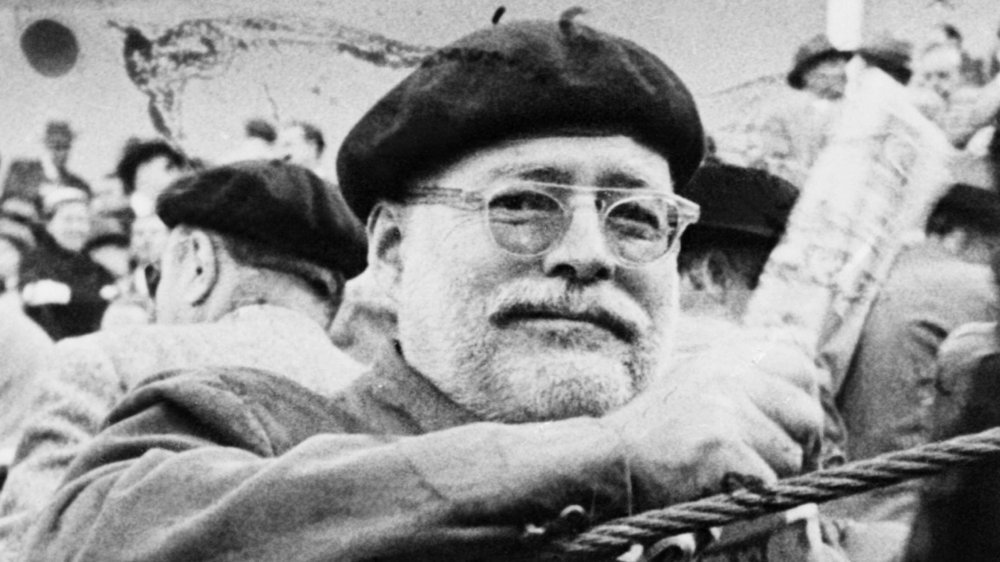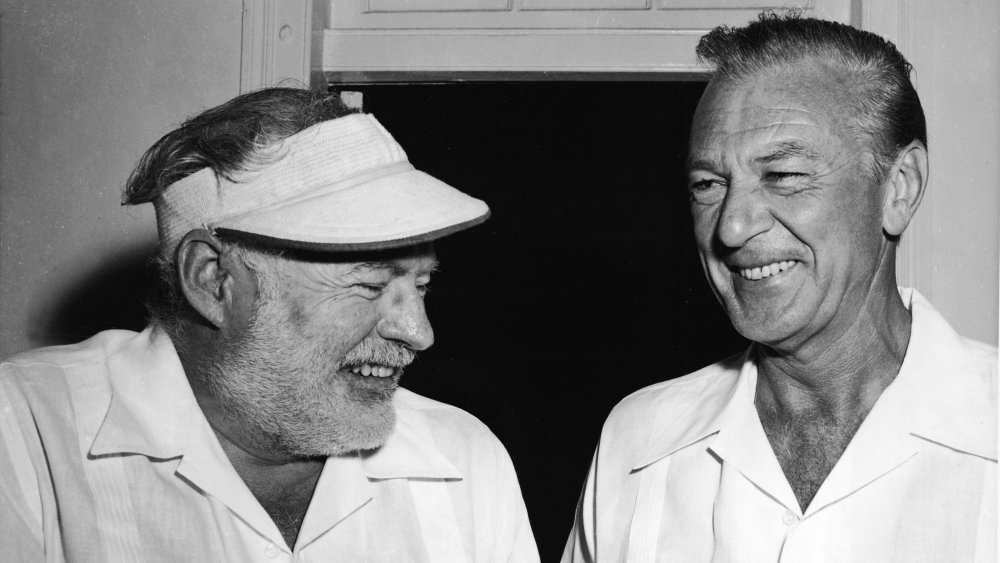The Tragic Death Of Ernest Hemingway
There's no question that Ernest Hemingway was one of the 20th Century's professional manly men. He was famous for his sparse writing style, both fiction and journalism, chronicling hunting, bullfighting, war, love, fishing, triumph, despair and loss. He gave us a definition of courage — he used the word "guts" — as "grace under pressure," although later he qualified that as "something else ... Guts never made any money for anybody except violin string manufacturers." (It also gave Rush the title of an album.)
"Papa," as he was sometimes known, gave high school English students an everlasting gift in his near-novella, "The Old Man and the Sea, almost guaranteed to be the shortest book on the reading list. Hemingway hunted big game in Africa, ran with the bulls in Pamplona, Spain, and made it through four wives in the course of his life. The Nobel Prize in Literature was bestowed on him in 1954. He started out as a journalist in Kansas City, Missouri, on the Kansas City Star newspaper, where he said he learned to write "a simple declarative sentence. This is useful to anyone."
He wasn't always this cheerful
Biography tells us that he was an ambulance driver for the Italian Army during World War I. He was given the Italian Silver Medal of Bravery, but also significantly wounded in the course of his service. He went on to a life spent in search of adventure of all kinds, throughout the world. He was a fan of sports of many kinds, but worked intensely on his writing, creating a style that seemed simple and sparse but was in fact the result of near effort approaching agony. Done well, what is written becomes more true than "anything true and alive, and you make it alive, and if you make it well enough, you give it immortality," he once said. Besides his war wounds, Hemingway also suffered mishaps while hunting and somehow survived multiple plane crashes as well. In time, his lifestyle caught up with his famous physicality, and he began to suffer from high blood pressure and liver disease, among other ailments. Added to that was near-debilitating depression. He spent time in Cuba, trying to recover, but eventually retired to Ketchum, Idaho. Despite various therapies, it was there that he committed suicide, with a self-inflicted shotgun blast to the head, on July 2, 1961. He was 61 years old.

